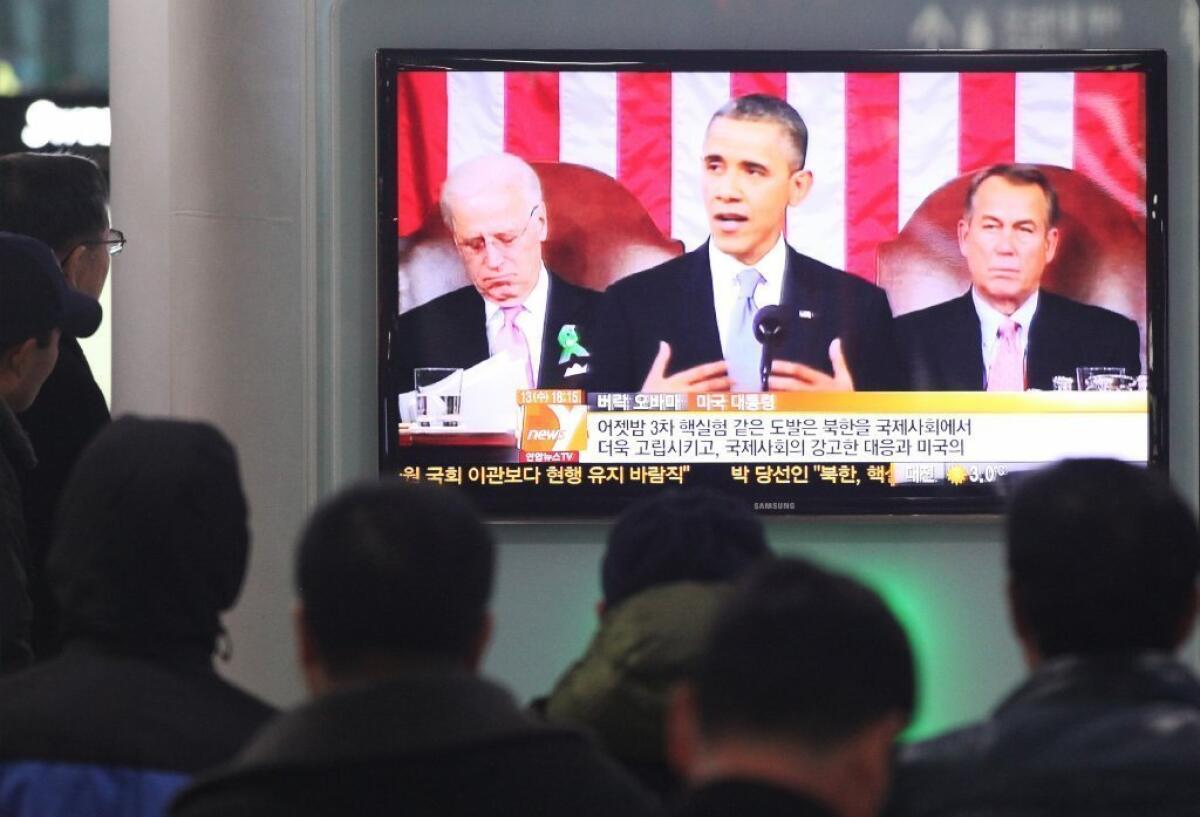SOTU the morning after: Bold or modest?

- Share via
A State of the Union address is a text rich enough to allow many interpretations, it seems.
A reader surveying pundits’ responses to President Obama’s speech Tuesday evening will encounter a Rashomon effect: the same event described in different but equally plausible ways by different observers.
The Washington Post’s Ezra Klein and the New York Times’s Ted Widmer thought the speech was bold and ambitious – “incredibly ambitious,” Klein wrote.
TRANSCRIPT: 2013 State of the Union
But the Washington Post’s Matt Miller, National Journal’s Ron Fournier and my column described the speech as more modest. “Incremental and pragmatic,” Fournier wrote.
Confused? One of the smartest takes, from the Times’ Washington bureau chief, David Lauter, may help. Lauter wrote that the president actually gave two speeches – one ambitious, the other less so.
On issues where there’s little chance of success in Congress – new government spending on infrastructure, for example – Obama went big. “White House officials do not expect Congress to pass many of those ideas, if any, and feel free to tout them as ways to rally support among fellow Democrats,” Lauter wrote.
But on issues where bipartisan agreement might be reached, he noted, Obama was more cautious. On immigration reform, the president merely praised unnamed members of Congress for pursuing the issue. The guiding principle, Lauter wrote, seemed to be: “Insert yourself the least where the chance of success is best.”
ALSO:
McManus: Obama’s less-is-more agenda
Obama takes a two-pronged approach
The real audience for President Obama’s State of the Union speech
More to Read
A cure for the common opinion
Get thought-provoking perspectives with our weekly newsletter.
You may occasionally receive promotional content from the Los Angeles Times.









